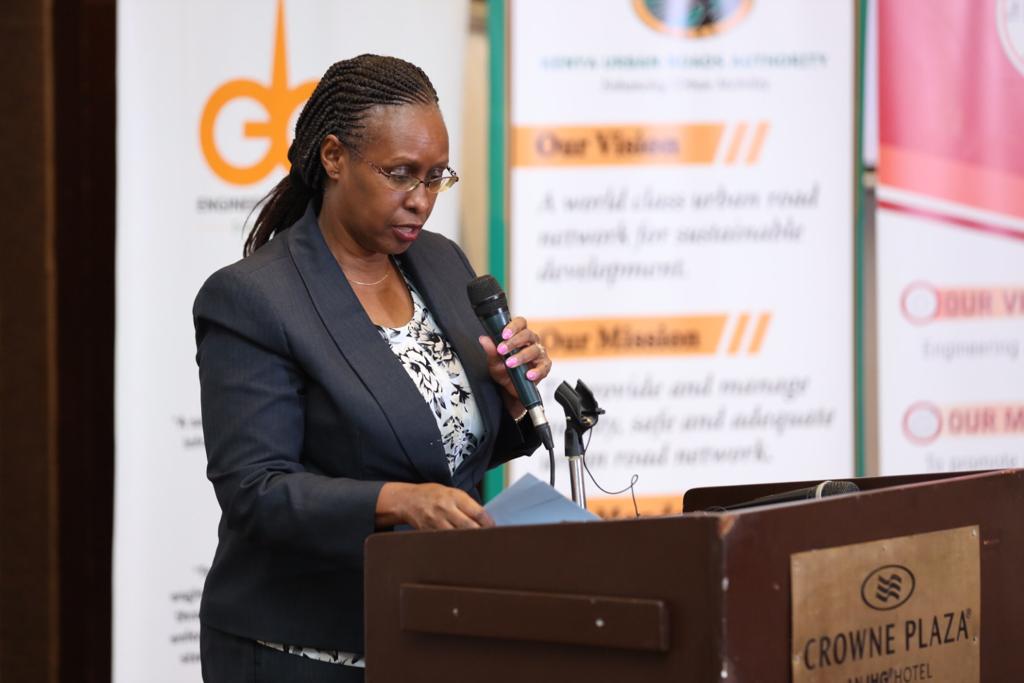Millicent Agutu was an engineer at Safaricom, the Kenyan mobile network service provider, in various capacities for 11 years.
Engineer Agutu says her journey to studying engineering started out of curiosity after she transferred from a girls’ only secondary school to a mixed-sex one in Third Form.
“Girls in the school did not like Physics since it was perceived as a boys’ subject, and no female student was studying it when I joined,” she says.
“It kept bothering me why that was happening and that’s how I became curious and my journey to discovering technology started.”
Agutu’s experience shows how girls perceive and perform in Science, Technology, Engineering and Mathematics (STEM) subjects in most Kenyan schools, right from the primary school level of education.
In the recently released 2022 Kenya Certificate of Primary Education (KCPE) examination results, female candidates performed better than males in English, Kiswahili, and Kenyan Sign Language. The boys’ performance in Mathematics, Science and Social Studies, and Religious Education was exemplary.
As the world marks the International Day of Women and Girls in Science on February 11, Engineers Board of Kenya (EBK) chief executive Margaret Ogai says the situation of women and girls in STEM in Kenya is “bad.”
Engineer Ogai says she is the only female engineer heading a semi-State enterprise in Kenya. “The only other woman engineer who has ever risen to that position was my friend, Rosemary Oduor, who was the acting chief executive of Kenya Power.”
Girls and boys are assigned roles
According to data provided by EBK, the body that registers engineers and accredits engineering programs offered by universities in Kenya, out of 2,501 registered professional engineers, only 211 are women, representing a paltry 8.4 percent.
Ogai says the problem starts at the family and community levels where girls and boys are assigned roles, with the former concentrating more on caregiver duties.

Even for Agutu, beyond her curiosity, what propelled her to enroll for a Bachelor of Science in Telecommunication Engineering degree at Jomo Kenyatta University of Agriculture and Technology was the fact that while growing up, she liked games such as football, riding bicycles, and fishing, that were majorly being played by boys.
She grew up knowing that certain roles and games were reserved for boys and girls. But she also had something most girls lack: parental support and guidance.
“When my (KCSE exam) results were out, my father and my elder sister felt that an engineering course would be the best for me after looking at my academic strengths and capabilities. I took the challenge positively and jumped into it,” says Agutu.
Because there are still few girls and women studying STEM subjects or employed in science-related fields.
All is not lost
Ogai says younger school girls lack role models and are discouraged from studying technical courses later in life.
“When I joined the university, there were technical colleges for boys only, and these prepared them for the future. Girls studying technical courses such as engineering were still encouraged to pursue courses that were considered lighter, such as food and nutrition,” she says.
According to a 2021 Unesco report dubbed Unlocking the Potential of Girls in STEM in Kenya, 35 percent of STEM students in higher education globally are women with variations within specific STEM disciplines.
For instance, only three percent of female students in higher education institutions choose information and communication technology (ICT) studies; natural sciences, mathematics, and statistics are picked by five percent, and eight percent pick engineering, manufacturing, and construction.
Women’s participation is highest in health and welfare studies at 15 percent.
I needed a change, something that would make me discover my spark and put me in a place where I’d be able to understand the business in a bigger spectrum. I needed growth and visibility and you only find that outside your comfort zone.”
The African Development Bank further reports that less than 25 percent of African higher education students are in STEM fields.
Ogai, however, says all is not lost. After various interventions, more girls are now taking STEM courses, if the current numbers in universities and colleges are anything to go by.
Girls now make up about 30 percent of engineering students in all universities in Kenya.
She says the biggest challenge is still in workplaces where women in technical fields find it hard to grow due to challenges such as sexual harassment, more men in decision-making positions, and women getting derailed by their duties of raising families at home.
Create your own space

“Most women start their careers as engineers but change to other professions as they plan to start families. There is a lot of fieldwork involved in this practice but most of us shy away from going to the field and are ignored when it comes to promotions,” she says.
Agutu agrees that the STEM industry is still male-dominated and for a woman to grow, “you got to create your own space and fight for the opportunities that arise from time to time.”
She recently left the engineering department at Safaricom and moved to risk and compliance, but insists the decision had nothing to do with the challenges highlighted above.
“I needed a change, something that would make me discover my spark and put me in a place where I’d be able to understand the business in a bigger spectrum. I needed growth and visibility and you only find that outside your comfort zone,” she says.
Ogai says women in STEM professions need support and platforms such as the Women Engineers Chapter at the Institution of Engineers of Kenya (IEK) where members are mentored by their peers and seniors.
Girls in school also need proper guidance that breaks traditional barriers and archaic cultural practices that deny women and girls opportunities for growth.
The writer is an editorial consultant and consulting science editor for Media for Environment, Science, Health and Agriculture (MESHA).
Email: gombogo@rocketmail.com
